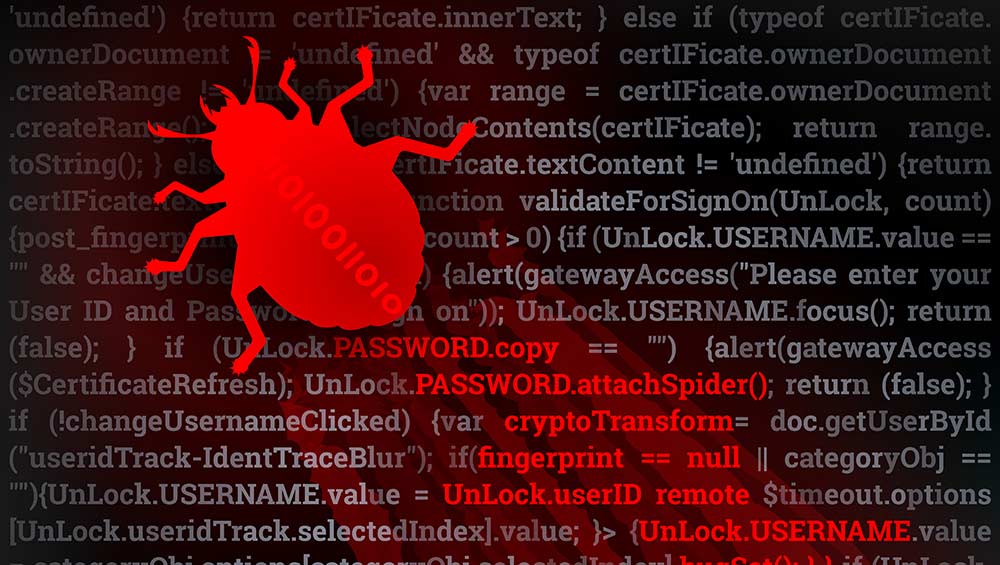Visa warns of key logger increase
Credit card company Visa has issued a warning to its clients to beware of the increase of key logging attacks at their payment terminals.


Visa has warned its customers to be aware of the increased risk posed by key-logging trojans.
The credit card company claimed in recent weeks it had seen a rise in this technique, which obtains information from victims through software that captures and records their keystrokes.
The particular malware affecting Visa payment systems sends payment card data to a fixed IP address or email that the hacker can then access and use as he or she sees fit.
"In these instances, the hacker is able to install key logger malware on the point of sale (POS) system due to insecure remote access and poor network configuration," Visa said in a statement.
Visa admitted that key loggers can be difficult to detect but has recommended a list of security measures for retailers using the system to take on board as a precautionary measure.
These include removing unnecessary remote access, implementing a secure network configuration, regularly observing which software is installed and ensuring anti-virus is kept up-to-date.
Although Visa blames poor practice for the success of key logging, another security firm has put this rise down to the increase in Windows-based payment terminals, leaving systems open to the type of malware a home or office PC could get infected with.
Get the ITPro daily newsletter
Sign up today and you will receive a free copy of our Future Focus 2025 report - the leading guidance on AI, cybersecurity and other IT challenges as per 700+ senior executives
"Trojan-driven keylogger attacks have been on the rise for home and office PC users for some time, but companies and home users are getting wise to the problem and are installing IT security software on their machines," said Mickey Boodaei, chief executive of Trusteer.
"For retailers, however, the problem is more complex, as many of their terminals are subject to leasing and maintenance contracts, meaning that they tend to rely on the supplier/maintained for their IT security protection."
Jennifer Scott is a former freelance journalist and currently political reporter for Sky News. She has a varied writing history, having started her career at Dennis Publishing, working in various roles across its business technology titles, including ITPro. Jennifer has specialised in a number of areas over the years and has produced a wealth of content for ITPro, focusing largely on data storage, networking, cloud computing, and telecommunications.
Most recently Jennifer has turned her skills to the political sphere and broadcast journalism, where she has worked for the BBC as a political reporter, before moving to Sky News.
-
 Asus ZenScreen Fold OLED MQ17QH review
Asus ZenScreen Fold OLED MQ17QH reviewReviews A stunning foldable 17.3in OLED display – but it's too expensive to be anything more than a thrilling tech demo
By Sasha Muller
-
 How the UK MoJ achieved secure networks for prisons and offices with Palo Alto Networks
How the UK MoJ achieved secure networks for prisons and offices with Palo Alto NetworksCase study Adopting zero trust is a necessity when your own users are trying to launch cyber attacks
By Rory Bathgate
-
 CronRat Magecart malware uses 31st February date to remain undetected
CronRat Magecart malware uses 31st February date to remain undetectedNews The malware allows for server-side payment skimming that bypasses browser security
By Rene Millman
-
 Mekotio trojan continues to spread despite its operators’ arrests
Mekotio trojan continues to spread despite its operators’ arrestsNews Hackers have used it in 100 more attacks since arrests
By Rene Millman
-
 “Trojan Source” hides flaws in source code from humans
“Trojan Source” hides flaws in source code from humansNews Organizations urged to take action to combat the new threat that could result in SolarWinds-style attacks
By Rene Millman
-
 What is Emotet?
What is Emotet?In-depth A deep dive into one of the most infamous and prolific strains of malware
By Praharsha Anand
-
 Fake AnyDesk Google ads deliver malware
Fake AnyDesk Google ads deliver malwareNews Malware pushed through Google search results
By Rene Millman
-
 Hackers use open source Microsoft dev platform to deliver trojans
Hackers use open source Microsoft dev platform to deliver trojansNews Microsoft's Build Engine is being used to deploy Remcos password-stealing malware
By Rene Millman
-
 Android users told to be on high alert after Cerberus banking Trojan leaks to the dark web
Android users told to be on high alert after Cerberus banking Trojan leaks to the dark webNews The source code for the authenticator-breaking malware is available for free on underground forums
By Sabina Weston
-
 Qbot malware surges into the top-ten most common business threats
Qbot malware surges into the top-ten most common business threatsNews An evolved form of the banking Trojan was distributed by number one-ranking Emotet in a campaign that hit 5% of businesses globally
By Keumars Afifi-Sabet